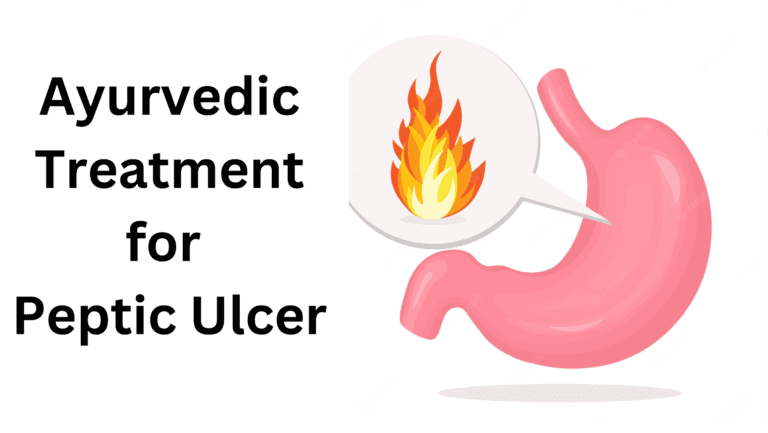Get Authentic Ayurvedic Treatment for Peptic Ulcer
Heal Peptic Ulcer with safe and natural Ayurvedic treatment. Risha Ayurveda offers Ayurvedic treatment through ayurvedic medicine, home remedies, lifestyle changes and yoga, providing long-term relief and preventing complications.

What is Peptic Ulcer
Ulcerations (sores) in the inner lining of upper part of the digestive tract are known as Peptic Ulcers. The term peptic is used for all ulcers which may exist in the lower part of food pipe (esophagus), in the stomach or in the initial part of the intestine (duodenum). About 10% of all adults are affected with Peptic ulcers at some time in their life. The incidence of Peptic ulcers is more common in males as compared to females.
What are the Causes of Peptic Ulcer
The underlying process that results in Gastric ulcer formation is excess of acid production in the stomach and damage to the protective barrier inside the stomach.
- Food habits
- Over use of hot spicy pungent food
- Over use of NSAIDS (non-steroidal anti-inflammatory drugs)
- Infection with H-pylori bacteria
- Alcohol and smoking
- Stress &anxiety may also cause peptic ulcer.
Symptoms of Peptic ulcer
- Pain in upper part of abdomen (epigastric region)
- Burning of chest &stomach
- Weight gain
- Severity of pain increases when empty stomach
- Haematemisis (vomiting with blood stains)
- Dark or black stool

Ayurvedic Treatment Perspective of Peptic ulcer
In Ayurveda peptic ulcer is described as annadrava shool and parinaam shool.Annadrava shool is correlated with gastric ulcer and parinaam shool is duodenal ulcer.
Pain in annadrav shool usually starts after eating food and does not subside anytime; it has no relation with meals or with lifestyle changes, but is relieved after vomiting. Parinaam shool is described as pain during digestion of food. These ulcers are further divided in Vata, Pitta and Kapha types.
Vata types of ulcers occur due to vitiation of vata dosha leading to dryness of mucous membrane of stomach and intestine. This dry membrane is unable to protect stomach wall from normal or low levels of acid present in the stomach or intestine and this result in the ulceration.
Pitta types of ulcers occur due to vitiation of pitta dosha leading to dryness of mucous membrane of stomach and intestine due to high level of acid. Pitta type ulcer results from excess acid secretions. This dry membrane is unable to protect stomach wall from normal or low levels of acid present in the stomach or intestine and this result in the ulceration.
Ayurvedic Treatment for Peptic ulcer
At Risha’s Health and Ayurvedaa solutions we follow ayurvedic treatment principles to give permanent relief from acid reflux. The approach is very holistic.
Detox :One needs to clean the digestive system from the toxins that accumulated.
Diet : Secondly one need to change their diet and eat in accordance with his/her body type and to balance the aggeavted dosha’s.
Dosha Balancing : Lastly dosha’s need to be balanced to avoid the recurrence of disease.
Panchkarma Therapy : Specific panchkarma therapies may be required as per individual requirement.
Our Approach
1 . Comprehensive Analysis:
We lay a lot of emphasis on identifying the root cause of acid reflux in a person. For this we use various tools such as Nadi pariksha, Prakriti Parishan, and detail about all the aspect responsible for development of disease.
2. Customized treatment plan :
Based on the results of the comprehensive analysis a customised ayurvedic treatment plan is created which consit of diet plan, lifestyle corrections, yoga, herbal ayurvedic medicines and specific therapies to restore dosha balance.
3. Compassionate Care :
Your health and well-being are our top priorities. We are committed to providing compassionate care in warm and welcoming environment.
